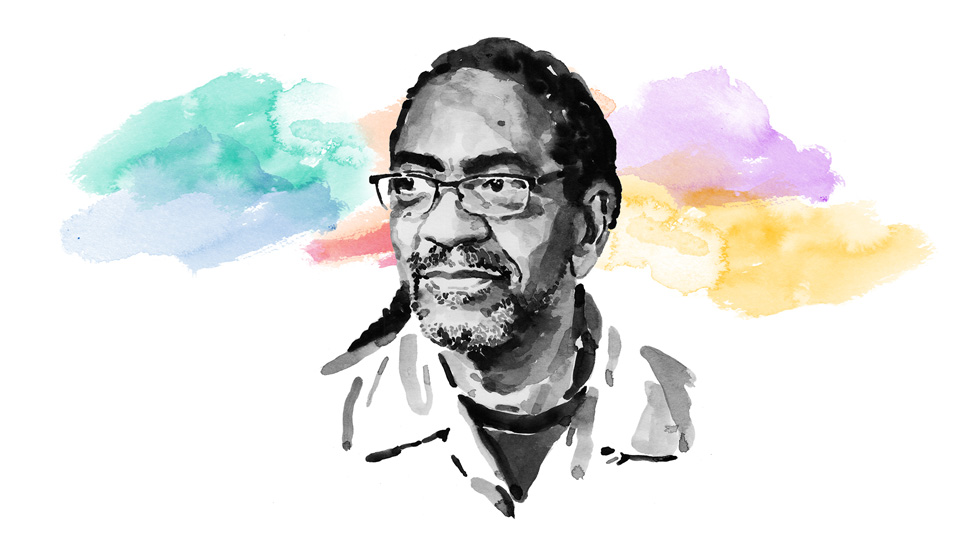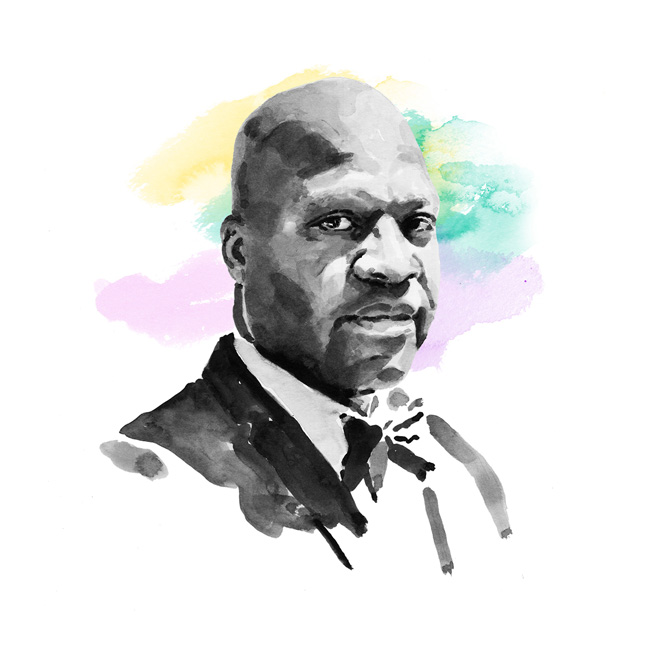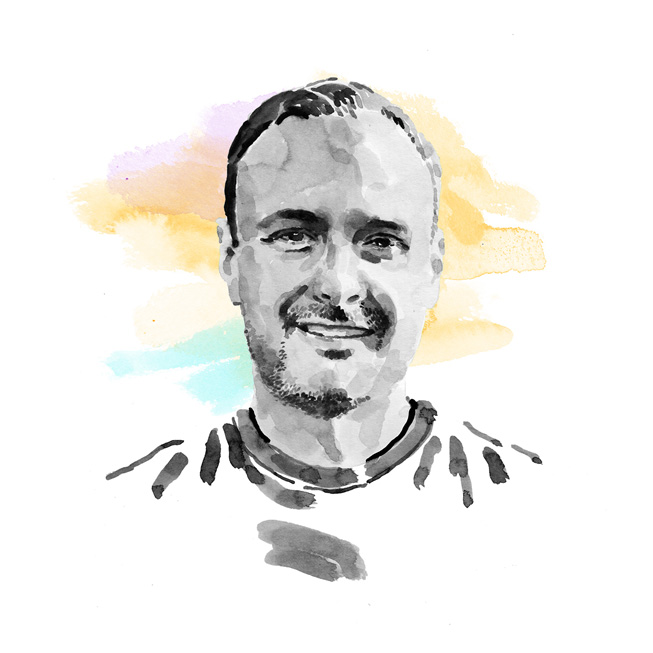Zpráva dne
23 července 2020
Future forward: The 40-year mission of an Apple Distinguished Educator
Dr. Carl Owens has been teaching his students how to harness the power of technology for 40 years, including more than half as an Apple Distinguished Educator (ADE). This year, the ADE program, which recognises and nurtures educators who are using Apple technology to transform learning, celebrates its 25th anniversary. Owens is one of more than 3,000 educators from 45 countries who have been part of the program during that 25-year history.
Over the course of his career, Owens, 65, has taught thousands of undergraduate, master’s, and PhD students, many of whom were aspiring teachers who went on to teach tens of thousands of their own students. But as the College of Education professor at Tennessee Tech University prepares to retire at the end of the coming school year, don’t ask him to dwell on yesterday — he would much rather imagine tomorrow. For Owens, the future is bright, which has everything to do with the students he’s mentored and the mission they will continue in his stead.
“The greatest joy in life is to not form students in your likeness, but to empower them to become greater than what they perceive they can be,” says Owens. “I’ve planted enough trees on this earth, and by that I mean the thousands of students that I’ve had the opportunity to work with. You enable them so that they can carry that vision of technology forward and advance it. They are the future.”
One of those students was Dr. Michael Torrence.
“Looking forward, that’s constant with Dr. Owens,” says Torrence. “He’ll say, ‘So what did you do today? How did you advance the mission?’ And the mission is very clear when you come through his classroom and when you engage with him. Preparation for tomorrow doesn’t begin today; it began a long time ago. The more time people spend looking backwards, the less we’ll be able to get accomplished. So future forward is always the mission.”
Torrence, 46, first learned about that mission 18 years ago, during his second week as an assistant basketball coach at Tennessee Tech. He ran into Owens on campus and the professor suggested Torrence stop by his office to talk about his future. Every day since then for the past 18 years, Owens and Torrence have talked, either in person, on the phone, or though text or email. Those conversations helped steer Torrence toward his PhD and eventually to his current role as president of Motlow State Community College in Tennessee.
“The conversations we’ve had from that point to this moment have helped frame not what’s plausible or possible, but the fact that there is no ceiling to what you can achieve,” says Torrence. “It has meant so much to be around someone like Carl, who is an ADE, and to go deeper, beyond just what the regular consumer knows, to understand the impact these tools can have from a technologist’s perspective.”
Owens has been using Apple products since he set his eyes on the first Macintosh in 1984, and he uses the full suite of Apple devices and software in his classes and at Tennessee Tech’s Jeffers Learning Resource Center, which he runs.
“Apple cut its teeth in education,” says Owens. “In the beginning, before the iPhone or iPad, Apple was the company that had a computer that enabled educators to become greater than what they ever knew they could be.”
Owens has been provisioning each of his students with an iPad for years and uses Apple products to help teach them how to imagine different and creative ways to approach learning.
“If you teach a process by showing a singular way to do something, as we do so often with kids, every product looks like what you taught, and that just stunts the creative process,” says Owens. “I say, ‘I want you to be unfiltered in the creation of something.’ Apple products have always lent themselves to teachers and students being creative about learning.”
In addition to using apps such as Keynote, GarageBand, and iMovie, Owens has encouraged his students to collaborate remotely for years. That has included working on projects from different locations on campus, and administering office hours and hosting guest lecturers from around the world through FaceTime.
“Because of the ADE program, I have friends internationally, and I would tell my students, ‘I’m going to show you what the future of teaching is going to look like,’” says Owens. “And then on the first day of class, I would FaceTime these fellow ADEs in from Australia, New Zealand, Italy, all over the world.”
When COVID-19 forced campuses and schools around the world into remote learning earlier this year, Tennessee Tech was ready, thanks in part to Owens, who has been preparing for tomorrow for 40 years.
“Dr. Owens has absolutely laid the foundation for us to be as flexible as we have been with COVID-19,” says Dr. Jason Beach, 41, a professor at Tennessee Tech who is also on the school’s COVID-19 task force. “The pandemic happened so fast and so many things shut down quickly that it became really hard to find the necessary equipment, but we had a lot of that stuff already in place because of him.”
Beach isn’t just speaking as a colleague — he was Owens’s student nearly 20 years ago at Tennessee Tech and returned soon after to begin teaching courses of his own.
“The things that he stood for back when I had him as a teacher are the same things that he stands for now — of course, he’s using a lot more advanced technologies,” says Beach. “His biggest impact on me is putting others first. He’s been training and mentoring me so that I can continue his legacy, and I couldn’t think of a better way of honouring him than just continuing to help and serve the students that we have.”
Inspired by Owens, both Beach and Torrence are always looking for ways to bring new technologies to their students. At Motlow, Torrence has embraced Tennessee State University’s HBCU C2 initiative, created in partnership with Apple, which brings coding and creative learning opportunities to students. And both professors are currently working to expand their schools’ virtual reality curricula and labs.
“Carl said to me the bigger picture is that you’re providing opportunities for students that they may never have been able to experience before,” says Beach. “The words that you say, the actions that you take, and the things that you do for them will stick with them forever, and that’s something that’s going to outlast technology because you’re investing in them. That’s what he did with me: He invested in me and he made me a better person because he gave me opportunities that I wouldn’t have had, had I not known him.”
“Being around him, it’s always about constantly evolving,” says Torrence. “To this day, he’s still challenging me — how are you going to be a better version of yourself today than you were yesterday? He is a force of nature. I really believe that the world is a better place and I am a better human being because of him.”
In a rare look back, Owens says he is tremendously proud of Torrence, Beach, and all of the thousands of students he has taught over his career.
“I celebrate the life that I’ve had,” says Owens. “I celebrate being a teacher. I celebrate the teachers that have taught me how to be this way. And I celebrate every student that I have had the opportunity to stand in front of. If I think about what I imagined 40 years ago and I see where we are now in terms of technology — well, I hope that 40 years from now, for all of the students I have worked with, everything they imagine now and their dreams for the future will come true in a way that mine have.”
Sdílet článek
Images of Apple Distinguished Educator


